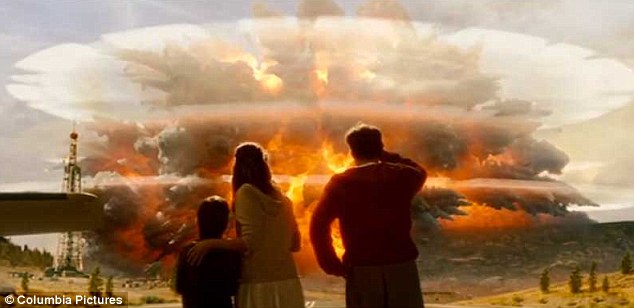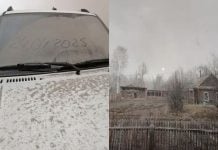People are afraid of a Yellowstone eruption and thus sometimes spread misinformations even when they think they know the facts.
With that in mind, here are a few of the common misconceptions regarding the Yellowstone volcanic system
When Yellowstone erupts…. it will be Armageddon.The most likely explosive event to occur at Yellowstone is actually a hydrothermal eruption or a lava flow. Though the worst-case scenario for a giant Yellowstone eruption is indeed bad, and could have global implications, most past eruptions at Yellowstone were not highly explosive. Of the past 50 or so eruptions, almost all were simple lava flows. If they occurred tomorrow, or next year, they would have minimal direct effect outside Yellowstone National Park. This is the most likely volcanic scenario at Yellowstone. You can read our published report discussing the relative likelihood of eruptions at Yellowstone.
As for the worst-case scenario, even previous Yellowstone supereruptions did not cause extinctions, and ash fallout on the other side of the continent was minimal.
The Yellowstone magma chamber is growing.There’s no evidence for that one. Though we get better and better at understanding the extent of magma beneath Yellowstone, that doesn’t mean the magma storage region is growing. A study reveals a lot of partly molten rock, but nearly all of it appears too “frozen” to erupt. And no one has found evidence for an increase in the size of the near-surface magma reservoir (the one that feeds the eruptions) within the timeframe that we have been monitoring Yellowstone.
Eruptions at Yellowstone are possible, but we have no evidence that enough melt has accumulated in one place to feed a supereruption. Again, if it were to erupt, the most likely type of eruption would be a comparatively non-explosive lava flow.
Yellowstone is overdue for a supereruption. If it does erupt, it need not be a large eruption. Moreover, there’s no necessity that there will be another supereruption. Most volcanic systems do not have multiple such events. When they do, the supereruptions are not evenly spaced in time. Finally, it is not valid to calculate a recurrence period solely on two values (the two intervals between supereruptions). Therefore, the calculations you may hear stating that Yellowstone is some number of years overdue for a supereruption is mathematically inaccurate.
Yellowstone is rapidly rising. Not as of May 2015. Since regular monitoring of Yellowstone began in the 1970s, we have observed episodes of relatively rapid uplift and subsidence (3 to 5 inches per year), notably from 2004 to 2010. However, as of May 2015, not much is happening. Anyone interested can readily find the latest monitoring data or the Yellowstone monthly updates. Yellowstone clearly can move up and down regularly without erupting. No volcanic eruption has occurred at Yellowstone for 70,000 years.
Earthquake data indicates moving magma. Almost all earthquakes at Yellowstone are brittle-failure events caused when rocks break due to crustal stresses. Though we’ve been looking for years at Yellowstone, no one has yet identified “long-period (LP) events” commonly attributed to magma movement. When they are observed, that will not mean Yellowstone is getting ready to erupt. LP earthquakes are observed commonly at other volcanoes in the world, including California, which have not erupted for centuries or millennia. One variety of ground shaking, called tremor, does occur at Yellowstone’s geothermal areas. That is because tremor is observed any time water boils in a geyser, though special seismic arrays must be used to detect this type of small ground motion.
This article was first published by USGS: http://volcanoes.usgs.gov/volcanoes/yellowstone/faqs_misconceptions.html












